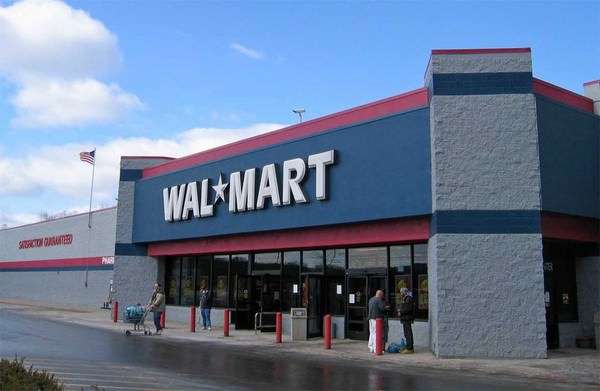Want Cheaper Food? End the Ethanol Mandate

Walmart has not had a good year so far. In an email leaked earlier this month, the company's vice president of finance and logistics grumbled that "February (month to date) sales are a total disaster… the worst start to a month I have seen in my… 7 years with the company."
Why is the nation's largest retailer struggling so much? In today's Wall Street Journal, Forbes publisher Rich Karlgaard notes the retailer's sales problems and points to a couple of reasons why the company is having so much trouble. The expiration of the payroll tax cut, which for the last few years has reduced take home pay levels by about $80 per month for families making $50,000 annually, is probably one factor. But Karlgaard also points to the role of food price inflation:
Food prices are rising faster than overall inflation. Inflation is the great hidden tax, especially when it hits essentials like food. Core inflation is running at about 2%, but the U.S. Department of Agriculture predicts that food prices will be up 3%-4% in 2013. This will nip at Wal-Mart customers and Wal-Mart itself, which now gets half of its U.S. revenue from groceries. Will Wal-Mart eat the inflation and hurt its profit, or will it pass it onto its customers and risk driving them away? Food inflation presents no good choices.
Food price inflation is indeed complex, and there's no simple way to prevent it. But there is a single step that government could take that would almost certainly significantly arrest the rapid rise in the cost of food: end ethanol energy mandates.

There's very little question about whether or not ethanol subsidies and related mandates, which essentially pay farmers to grow fuel instead of food, drive up the price of food. Ethanol policy hits corn directly, but because corn is so integral to the rest of the food production process, a rise in the price of corn quickly results in a rise in the price of other farm commodities such as meat, poultry, dairy, and soy products. When the Congressional Budget Office looked at the impact of ethanol subsidies on overall food prices between April 2007 and April 2008, the nonpartisan scorekeeper found that 10-15 percent of the 5.1 percent rise in food prices, as measured by the Consumer Price Index, could be attributed to ethanol subsidies.
The CBO noted at the time that it was difficult to precisely estimate the impact of ethanol subsidies going forward. But in early 2011, corn prices spiked after a crop shortage, which many analysts expected to translate into higher food prices. And over the years, ethanol subsidies, along with a renewable fuel standard which pushes energy producers to include ethanol in their products, has resulted in what the Farm Foundation describes as a "persistent demand shock." Some 40 percent of the nation's annual corn crop is now redirected into ethanol production.
Congress allowed direct ethanol subsidies to end in 2011, but the renewables standard remains, and it's by far the bigger factor. Even modest changes in ethanol policy could have a big impact. Last summer, three farm economists at Purdue University estimated that even if we just partially relaxed the renewables standard, corn prices could drop by as much as 20 percent. (That could also help ease the impact of rising gas prices, another factor that Karlgaard names as hurting Walmart in his oped, by increasing fuel economy.)
It's not just American consumers who would benefit. It would also help stop the rise of food prices worldwide, which harms poor and developing nations. The global impact is big enough that last summer, the World Bank suggested that an immediate easing of the renewables mandate could prevent a world food crisis.
Whether we're talking about America or the rest of the world, the reality is that higher food prices hit the poor the hardest — not just because they have less overall but because they spend a much larger portion of their incomes on food. The ethanol mandate is essentially a tax on the poor, in the U.S. and elsewhere.
Ending the ethanol mandate wouldn't fix all of Walmart's problems, or put a stop to rising food prices, and its impact might not be felt immediately due to the farm production cycle. But over time, it would probably restrain the rise in food prices, helping Walmart's business and making life better for Walmart's customers.


Show Comments (24)